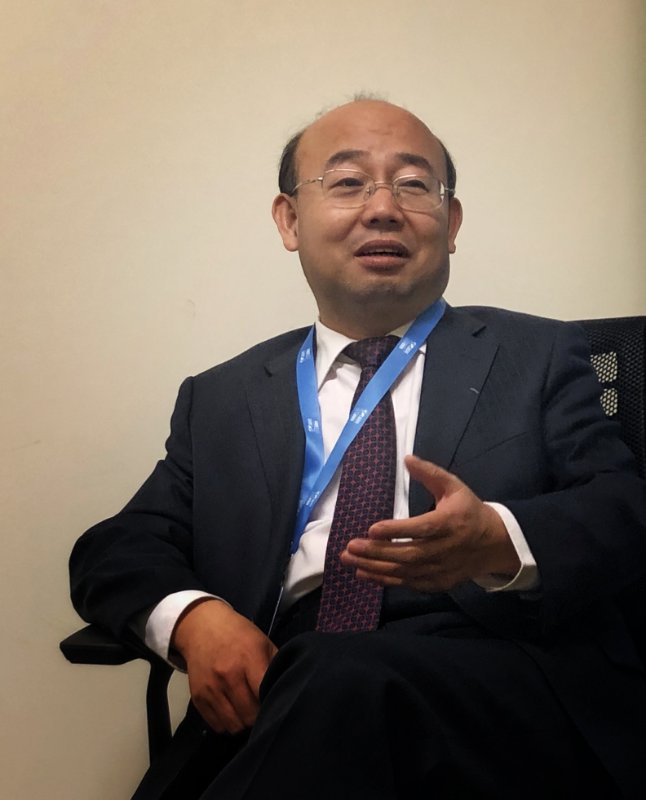
Luan Jianzhang, director-general of Research Office of the International Department of the CPC Central Committee, in an interview with China Today in April.
Two years ago, in his speech delivered at the UN headquarters in Geneva, President Xi Jinping laid out the core question of the era “What has happened to the world and how should we respond?” Our world is still being plagued by many problems: rising trade protectionism, unilateralism, and populism, strikingly imbalanced global development, and that many developing countries still can’t find their voices in lots of international bodies and mechanisms. As President Xi put it at the closing ceremony of a global governance forum co-hosted by China and France in Paris on March 26, 2019, the human society faces deficits in governance, trust, peace, and development.
As the Belt and Road construction is coming into full swing, more and more countries and regions have joined the great initiative. Guided by the principle of extensive consultation, joint contribution, and shared benefits, a range of new international cooperation platforms and mechanisms on the joint construction of the Belt and Road have been established. Seemingly a new type of globalization and global governance is emerging. To get more insight into the topic, China Today interviewed Luan Jianzhang, director-general of Research Office of the International Department of the Central Committee of the Communist Party of China (CPC).
China Today: Why does a new type of globalization and global governance emerge?
Luan Jianzhang: The emergence of a new type of globalization is mainly due to problems in traditional economic globalization. In his speech delivered at the opening ceremony of the Second Belt and Road Forum for International Cooperation (BRF), President Xi noted that imbalanced development is the biggest imbalance in the world today. In fact, imbalanced development is also the overriding contradiction in the world today. This is brought about by the economic globalization model of the past. We know that economic globalization essentially means the globalization of the market. The market-oriented economy means the diversification of stakeholders. Because if stakeholders are not diversified, there is no way to nurture a market economy. When the market-oriented economy plays its role on a global scale, part of the stakeholders would get richer than others, leading to uneven development. The root cause of this globalization problem is traditional global governance, which is based on rules that have been established under the dominance of some wealthy developed countries and are also beneficial to these countries.
China Today: What are the outstanding characteristics of the new type of globalization and global governance in your opinion?
Luan Jianzhang: President Xi didn’t used the term “new globalization” in his BRF speech, but put it this way, “We need to promote trade and investment liberalization and facilitation, say no to protectionism, and make economic globalization more open, inclusive, balanced and beneficial to all.” I think this explains the new type of globalization. To better understand globalization and global governance, I can give you an example. We often say that we should let the market play the decisive role in the allocation of resources, and the government should also better play its role in the process. At the international level, the decisive role of the market will lead to globalization, and the role of the government at the international level is global governance. Therefore, the paramount point of the new type of globalization and global governance is to balance the roles of these two aspects.
China Today: What’s the role of the Belt and Road Initiative in the new type of globalization and global governance?Luan Jianzhang: In his speech at the opening ceremony of the Second Belt and Road Forum for International Cooperation, President Xi Jinping noted, “The joint pursuit of the Belt and Road Initiative (BRI) aims to enhance connectivity and practical cooperation. It is about jointly meeting various challenges and risks confronting mankind and delivering win-win outcomes and common development.” I think the fundamental goal of the BRI is to make the world development more balanced. You can see, under the principle of extensive consultation, joint contribution, and shared benefits, a host of BRI cooperation projects have been rolled out to improve interconnectivity and promote more balanced development of the world. At the same time, the domestic development of certain countries is also becoming more balanced. All these result from the new type of globalization and embody the concept of a new type of global governance. This will surely make economic globalization more open, inclusive, balanced and beneficial to all. We emphasize common development of the world. I think China will contribute more to global governance and the world civilizations by introducing more concepts and initiatives like building a community with a shared future for mankind and the Belt and Road Initiative to the world.